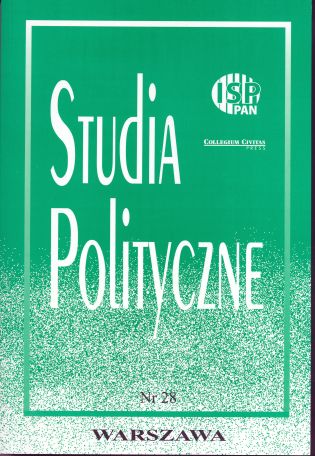Współczesny realizm i jego potencjał eksplanacyjny w postzimnowojennych stosunkach międzynarodowych
Contemporary realism and its explanatory potential in post-Cold War international relations
Author(s): Jacek WięcławskiSubject(s): Politics / Political Sciences
Published by: Instytut Studiów Politycznych PAN
Summary/Abstract: The article presents the issues of the explanatory potential of the realism theory in respect of international relations after the collapse of the bi-polar system. The backdrop for these considerations is provided by an analysis of the challenges that realism faced on the threshold of the collapse of the USSR, and, primarily, with providing a credible explanation of the evolutionary and peaceful end to the Cold War. The author points to the causes of these problems, putting the emphasis primarily on the difficulties faced by structural realism. The potential in this area, represented by the main stream of realism structural realism, the theory of hegemonic rivalry, realism in its offensive and defensive version and neoclassical realism, is analysed in reference to explanatory possibilities in respect of post-Cold War international relations. The author concludes that, despite difficulties, realism has not lost its explanatory possibilities with regard to post-Cold War international realities, provided that an approach wider than in case of structural realism, and more flexible, is applied. A neoclassical realism becomes such an approach, combining an analysis of the states’ conduct in an international arena with an interpretation of the factors of their domestic politics shaping their foreign policies, and making it possible, thanks to such an approach, to follow the dynamics of contemporary international relations.
Journal: Studia Polityczne
- Issue Year: 2011
- Issue No: 28
- Page Range: 195-219
- Page Count: 25
- Language: Polish

